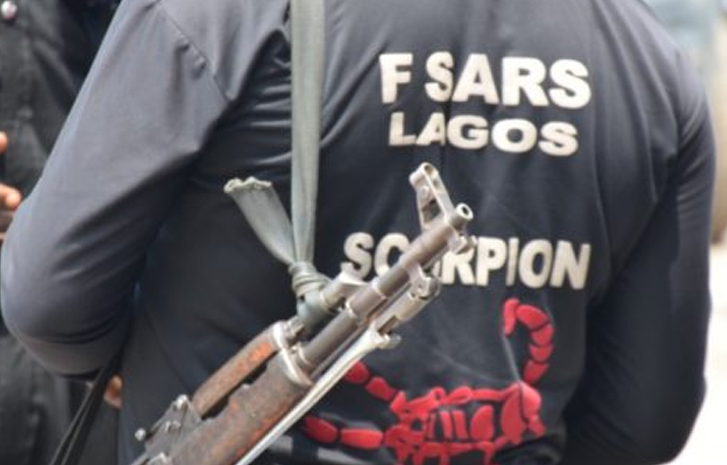
THEMATIC REPORT
Written by Lillian I. Akhigbe
The recent ban on routine patrol duties of the Federal Special Anti – Robbery Squad (FSARS) by the Federal Government of Nigeria, is certainly not the first of its kind, as such proclamations have been made by the hierarchy of the Nigeria Police severally, with no effective compliance resulting therefrom. Within the past five years of President Muhammadu Buhari’s administration, there have been at least 5 marching orders made with respect to FSARS and in response to the allegations of human rights violations levelled against officers of the FSARS division of the Police Force by several persons across the country. Many FSARS officers have gained notoriety for their inappropriate dressing and illegal activities which they perpetrate under the guise of conducting stop and search operations along the highways. The unlawful activities meted out on innocent Nigerians by FSARS include, harassments, intimidation, physical assaults, extortion, illegal detention, torture and extra – judicial killing.Over the past few years, it has become the modus operandi of the government to react to public outcry against the atrocities committed by FSARS officials, with proclamations such as, the immediate dismantling of all road blocks, etc. This appears to be a knee-jerk reaction which is expected to give an immediate semblance of a restoration of order, but only for a short while before things reverse to status quo and the road blocks resume again. Having acknowledged that the nefarious activities of some FSARS officials run contrary to the rules of engagement and standards of procedure of the Police Force, the government has once again issued a marching order banning FSARS from conducting stop and search operations, traffic checks at checkpoints, mounting roadblocks, etc.
But this order gives cause for scepticism as to the sincerity of the government in addressing the improprieties in the Police Force. This is because, tactical units of the Police Force such as FSARS, as well as the Special Anti – Cultism Squad, Special Anti – Kidnapping Squad, Intelligence Response Unit (IRT), Counter – Terrorism Unit (CTU) and other special tactical squads, ought not to have been on routine patrol duties in the first place. Hence, an order by the Police hierarchy, banning the patrol duties of FSARS, is quite inappropriate and unnecessary. Being a tactical security division, FSARS officers are only needed in extreme security cases bordering on armed robbery and other violent crimes which the conventional Police cannot handle alone. Such tactical squads are specially trained for specific security missions and are to be called on when needed. Their operations are often intelligence-driven and targeted at identifying, locating and dismantling criminal gangs across the nation, and bringing the criminals and their collaborators to justice. Typically therefore, their operational strategies should involve the deployment of undercover operatives, decoy operations and high-level tactical missions. They ought not to have been seen parading the streets, brandishing weapons, stopping vehicles, searching the phones and bags of commuters and extorting money from people while intimidating them, thereby violating the rights to privacy and dignity of those victimised persons. The recent order banning FSARS from conducting routine patrols, only reinforces what ought to be originally, as opposed to what has been. The order is therefore a very sad indictment of the country’s system of policing, as FSARS officers should never have been allowed out on the streets to conduct regular Police duties.
The Inspector General of Police, Mohammed Adamu, needs to show sincerity of purpose and determination to curb the menace which FSARS has become, by directing the immediate commencement of investigations into the attacks and harassments of Nigerians by SARS officials nationwide. Incidents of brutality and other forms of harassment reportedly meted out on innocent Nigerians by FSARS should be independently and dispassionately investigated. The IGP should ensure these allegations of misconduct and human rights violations are not swept under the carpet, but rather, remedial measures beyond an internal investigation, should be taken. Officers who are indicted should not only be made to face internal disciplinary actions, but should also be charged to court and prosecuted for their purported crimes. Rights abuses must not be covered up, irrespective of the identities of the alleged perpetrators. Officers of the law are not above the law.
Also, the Police hierarchy must work towards regaining the trust of the Nigerian populace and redeeming the image of the Police Force, through the regular training of all Police officers to inculcate in them the right mindset and values. Attention should also be given to the welfare of Police officers. There should be appreciable improvement in the living conditions of Police Officers. Their salaries and emoluments should be paid as and when due. Police barracks should be made habitable and equipped with amenities needed for decent living, for the benefit of the Police officers and their families. These reforms should be of utmost priority to the Nigerian government, in order to restore sanity in the Police Force. With the recent passage into law of the Nigeria Police Act, 2020, which establishes an appropriate funding framework for all Police formations, the critical challenges of inadequate funding, poor training, lack of manpower and expertise in the Police Force should henceforth be speedily addressed, for there to be a more effective system of policing driven by the principles of transparency and accountability.
